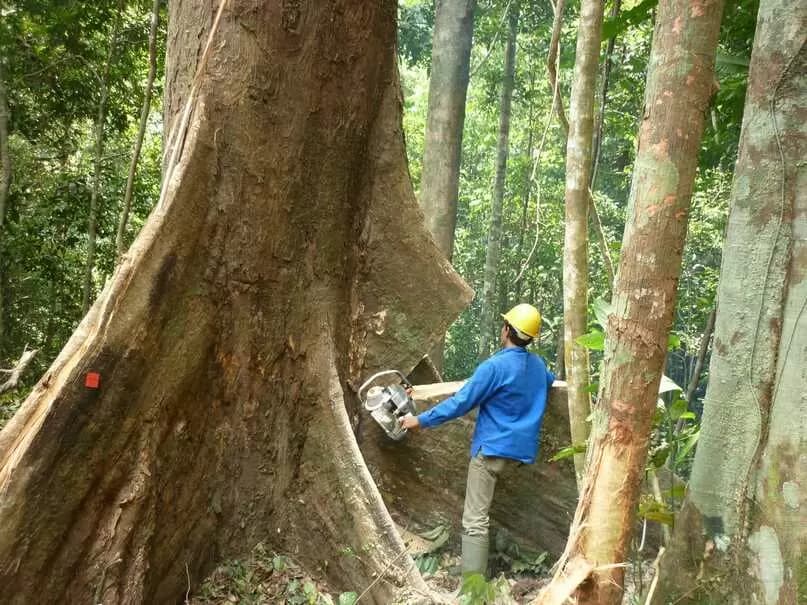The Global Timber Index (GTI) has launched a second specialized index, on timber production, to further increase the scope and depth of the ITTO-supported GTI. The first edition of GTI-Producers, for May, reported an overall index value of 39.2%, indicating a decline (compared with April) in the prosperity of the harvesting and primary processing industries in pilot countries.
The GTI, which tracks the performance of the timber sector in eight countries, produces a monthly overview report canvassing various aspects of the timber sector, plus a growing set of specialized indices. The first of the latter, on wood-based panels, was first published in May 2024.
The new GTI-Producers report follows development trends in timber harvesting and primary processing in seven ITTO producer countries: Brazil, the Congo, Gabon, Indonesia, Malaysia, Mexico and Thailand. More countries are likely to join the index soon.
According to ITTO data, the total production of logs and sawnwood in the seven countries was 289 million m3 in 2022, which was 63.1% of production by all 37 ITTO producer member countries combined.
In other news, the GTI-Wood-based Panels showed that the demand-side downturn reported last month for April eased in May. This index encompasses the seven countries listed above, plus China.
Timber markets in some of the pilot countries also showed positive signs in May, despite a downturn in the overall performance of the sector, according to the latest edition of the Global Timber Index Report.
In May, the GTI indices for Thailand (43.1%), Mexico (42.5%), China (42.2%), Indonesia (42.1%), the Congo (40.7%), Brazil (37.9%), Gabon (37.2%) and Malaysia (30.1%) were all below the threshold of 50%, thus indicating an overall decline in their timber sectors.
Indonesia’s timber market showed relatively strong upward momentum in May, with increases in harvesting, export orders and purchases of raw materials, compared with April. In Thailand, the quantity of export orders increased, although domestic demand remained low. Downward trends in harvesting eased in Gabon, the Congo and Mexico. In China, the timber market was in the off-season, with a decline in both orders and production, and some enterprises remained overstocked.
In the face of challenges in production and operations, GTI-participating enterprises voiced various policy-related demands in the hope of boosting markets. For example, Indonesian enterprises called for the revision of regulations that limit the maximum cross-sectional area of exportable wood products, with a view to supporting the sustainability of upstream and downstream sectors. Thai enterprises wanted to raise consumer awareness of the value and benefits of wood and wood products. Mexican enterprises recommended cooperation with various government agencies to improve forest service management systems. Chinese enterprises expressed a desire to increase trade fairs for wood products and also proposed that local businesses increase the proportion of exports and shift from the domestic market to the Southeast Asian market.
The outcomes of the most recent session of the United Nations Forum on Forests, held in May, will be integrated into the new global sustainable development agenda to be adopted in September this year. The goal of the new agenda is eradicating poverty and achieving sustainable development, and the inclusion of forest policies shows growing awareness in the international community of the key role of forests in poverty eradication and addressing climate change. At such an important moment in history, new solutions to support the legal and sustainable development of the timber sector are sorely needed.
Source: News
